Formulated to Matter
Every ingredient we choose is carefully selected for its proven role in supporting long-term wellness, backed by science and acceptance in the pet health industry at large, guided by veterinarians, and formulated with care.
Every Ingredient, Explained
Here we provide detailed information about every clinically proven ingredient that makes up our Essential product line comprised of JointShield, GutShield, AnxiShield, and VitaShield.
JointShield ™ Essential
This joint support formula contains key ingredients known to aid in mobility and comfort. Click the plus icon ⊕ below to explore each ingredient and supporting research. While extensive studies exist, we've selected a few to highlight their effectiveness.

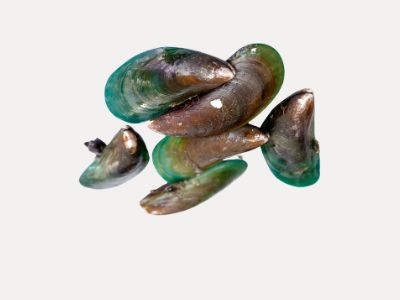
Green-Lipped Mussel
Found in coastal waters of NZ.
Natural anti-inflammatory
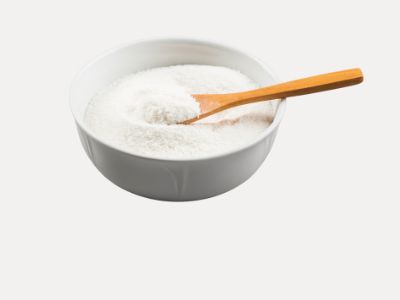
MSM
MSM (Methylsulfonylmethane):
Helps reduce joint pain
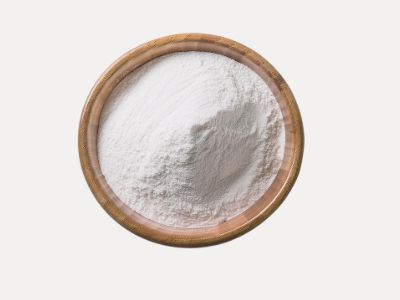
Glucosamine
Glucosamine Hydrochloride
Supports cartilage repair
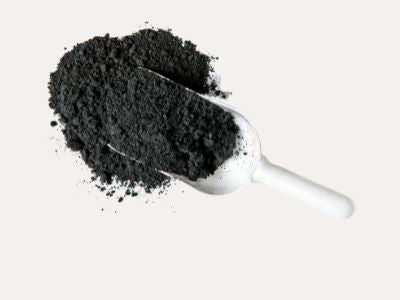
Manganese
An essential mineral
Role in bone development

Zinc
Known anti-oxidant
Assists with tissue repair

Vitamin C
Reduces oxidative stress
Supports collagen synthesis
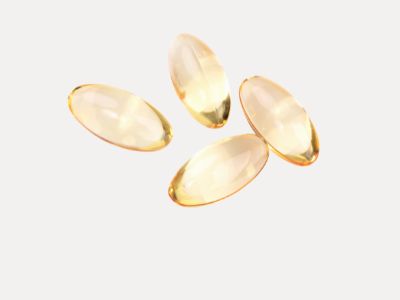
Vitamin E
A powerful antioxidant
Maintains overall health

WHAT IS IT?
Green-Lipped Mussel is a natural anti-inflammatory rich in Omega-3s and glycosaminoglycans to support joint cartilage.
RESEARCH
- A double-blind, placebo-controlled study found that dogs with degenerative joint disease showed significant improvement in clinical signs after 56 days of green-lipped mussel extract supplementation.
-----------------------------------------
- A randomized, double-controlled, double-blinded clinical trial evaluated the efficacy of a commercially available nutraceutical containing green lipped mussel in treating chronic orthopedic pain in dogs.
Effect Found: The GLM-containing nutraceutical significantly alleviated chronic orthopedic pain in dogs, showing a clinically relevant effect, though it was less effective than carprofen (a common NSAID). This supports its beneficial use for joint comfort.
Publication: Efficacy of a new generation of Glyco-Flex for the treatment of chronic orthopedic pain in dogs. (2009)

WHAT DOES IT DO?
Helps reduce joint pain and stiffness.
RESEARCH
- Research indicates that MSM supplementation in dogs can reduce inflammation and protect against joint degeneration, leading to decreased pain and stiffness.
----------------------------------------------
- Direct, standalone clinical trials specifically on MSM for joint pain or osteoarthritis in dogs are limited in widely accessible peer-reviewed literature. However, MSM is a common ingredient in multi-modal joint supplements for its known anti-inflammatory properties.
Effect Found: While specific dog-only studies are scarce, MSM is believed to reduce inflammation and pain, and protect cartilage. Its inclusion in comprehensive joint supplements for dogs is based on its known mechanisms of action in other species and its widespread use in human and animal joint health.
Publication: Limited direct clinical trials on MSM alone for specific joint issues in dogs. Its beneficial use is primarily supported by its anti-inflammatory properties and its role as a component in multi-ingredient joint health formulas.

WHAT DOES IT DO?
Supports cartilage repair and joint function.
RESEARCH
- A study demonstrated that dogs administered glucosamine hydrochloride–chondroitin sulfate for 21 days prior to induced synovitis exhibited significantly less joint inflammation compared to control groups.
---------------------------------------------
- A randomized, double-blind, positive-controlled trial evaluated the efficacy of glucosamine and chondroitin sulfate in treating osteoarthritis in dogs.
Effect Found: The study found statistically significant improvements in pain, weight-bearing, and overall severity of osteoarthritis in dogs treated with glucosamine and chondroitin sulfate, supporting its beneficial use for joint health.
Publication: Randomized double-blind, positive-controlled trial to evaluate the efficacy of glucosamine hydrochloride and chondroitin sulfate for the treatment of osteoarthritis in dogs.(2007).

WHAT IS IT?
Manganese is an essential mineral. It has a role in general metabolism and development of bone, cartilage and connective tissue. It is also known for its role in maintaining normal growth, reproduction and lactation.
RESEARCH
- Research has investigated the concentrations of essential trace elements like manganese in the bones of domestic dogs.
Effect Found: Manganese is an essential trace mineral critical for bone development and maintenance. Studies confirm its presence in canine bone tissue, highlighting its integral role in skeletal health, cartilage formation, and enzyme systems involved in joint function.
Publication: Concentrations of manganese, iron and strontium in bones of the domestic dog (Canis lupus familiaris). (2015).
-------------------------------
- This trace mineral support enzymatic reactions and antioxidant defences, contributing to joint and bone health.

WHAT IS IT?
Zinc is an antioxidant that occurs naturally in many foods, such as beans, meat, and fish. It assists with tissue repair, therefore skin health, and enzyme function.
RESEARCH
- Zinc-responsive dermatosis is a well-recognised syndrome in dogs, indicating the crucial role of zinc in skin health.
Effect Found: In dogs with zinc-responsive dermatosis, supplementation with zinc leads to significant improvement or resolution of skin lesions, highlighting zinc's essential role in maintaining healthy skin and immune function. Zinc is also vital for enzyme activity and overall cellular health.
Publication: Zinc-responsive dermatosis in dogs. (Information widely available in veterinary dermatology texts and clinical resources).

WHAT IS IT?
Antioxidant that supports collagen synthesis and reduces oxidative stress.
RESEARCH
- A study evaluated the effects of long-term Vitamin C (ascorbic acid) supplementation on antioxidative capacity and specific immune parameters in healthy adult dogs.
Effect Found: The study observed some limited immunological effects (e.g., increased CD4+ lymphocytes, specific interactions on PBMC proliferation) but no clear overall enhancement of anti-oxidative capacity in healthy dogs. This suggests that while essential, Vitamin C supplementation may have a nuanced impact in healthy dogs already receiving adequate dietary intake. It is well-established as an important antioxidant and cofactor.
Publication: Effects of long-term ascorbic acid supplementation on anti-oxidative capacity and specific immune parameters in healthy adult dogs. (2003).

WHAT IS IT?
A powerful antioxidant that plays a crucial role in maintaining overall health.
RESEARCH
- Studies show that vitamin E supplementation can reduce inflammation markers in dogs with osteoarthritis, which is relevant to joint health.
---------------------------------------------
- Vitamin E is an antioxidant, and its antioxidant properties can help protect against oxidative stress, which is a factor in joint damage and inflammation.
--------------------------------------------
- A study investigated the effects of parenteral vitamin E and selenium supplementation on the immune status of vaccinated dogs. Another study examined the effect of vitamin E deficiency on the proliferative response of canine lymphocytes.
Effect Found: In vaccinated dogs, supplementation with Vitamin E resulted in greater serum levels of the vitamin and contributed to an optimised immune response. Conversely, Vitamin E deficiency was shown to depress the proliferative response of canine lymphocytes, demonstrating its critical role in maintaining a robust immune system. Vitamin E is also a powerful antioxidant, protecting cells from damage. - Publication (Immune Status): Influence of parenteral vitamin E and selenium supplementation on the immune status of vaccinated dogs. (2007).
> Read Publication - Publication (Deficiency): Effect of vitamin E deficiency on proliferative response of canine lymphocytes. (1993).
> Read Publication
GutShield ™ Essential
This gut health supplement features carefully chosen ingredients that support digestion and microbiome balance. Tap the plus icon ⊕ below to learn more about each one and its scientific backing. We've included a sample of the broader research available.

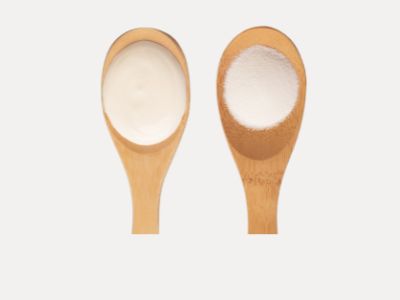
Probiotics
Balancing the gut microbiome
Maintain a healthy gut

Prebiotics (Inulin)
A prebiotic powerhouse
Nourishes gut flora

Pumpkin Powder
High fibre content
Aids digestion & stool quality

Green Banana Powder
Rich in resistant starch
Promotes good gut bacteria

Organic Pea Fibre
Support digestive health
Improves stool consistency
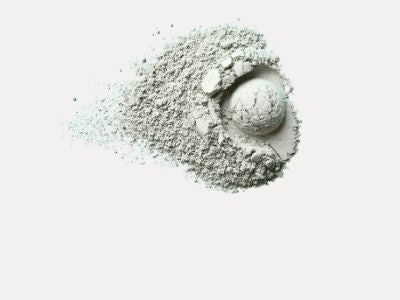
Bentonite Clay
Soothes digestive tract
Aids gastrointestinal health.

WHAT IS IT?
Probiotics play a crucial role in maintaining a healthy gut by balancing the gut microbiome, which is the community of microorganisms living in the digestive tract. They help with digestion, nutrient absorption, and even support the immune system by acting as a barrier against harmful bacteria.
RESEARCH
- Supplementation with probiotics in dogs has been shown to restore gut microbial balance after antibiotic treatment, improving gut health.
----------------------------------------
- A randomized, double-controlled, double-blinded trial investigated the effects of a diet supplemented with a probiotic strain (Bifidobacterium animalis AHC7) in dogs with pruritic dermatitis.
Effect Found: Dogs receiving the probiotic showed faster improvements in pruritus (itching) and positive changes in their gut microbiome compared to the control group. This suggests probiotics can modulate gut health and alleviate skin issues.
Publication: The effect of dietary supplementation with Bifidobacterium animalis AHC7 on the skin and gut microbiome of dogs with pruritic dermatitis: A randomized, double-controlled, double-blinded clinical trial. (2024).

WHAT IS IT?
Organic Jerusalem Artichoke is a prebiotic powerhouse rich in inulin to nourish gut flora.
RESEARCH
- Research has investigated the concentrations of essential trace elements like manganese in the bones of domestic dogs.
Effect Found: Manganese is an essential trace mineral critical for bone development and maintenance. Studies confirm its presence in canine bone tissue, highlighting its integral role in skeletal health, cartilage formation, and enzyme systems involved in joint function.
Publication: Concentrations of manganese, iron and strontium in bones of the domestic dog (Canis lupus familiaris). (2015).
-------------------------------
- This trace mineral support enzymatic reactions and antioxidant defenses, contributing to joint and bone health.

WHAT DOES IT DO?
While specific studies on pumpkin powder in dogs are limited, pumpkin is widely recognised for its high fibre content, aiding in digestion and stool quality.
RESEARCH
- While specific studies are limited, pumpkin is rich in soluble and insoluble fibre, which can help regulate bowel movements, absorb excess water in cases of diarrhea, and add bulk to stool for constipation. Its high water content also aids hydration.
Publication: Its beneficial use is largely supported by its nutritional composition (fiber) and extensive anecdotal evidence in veterinary practice.

WHAT IS IT?
Rich in resistant starch, green banana powder serves as a prebiotic, promoting beneficial gut bacteria.
RESEARCH
- A study investigated the effects of dietary resistant starch from green banana biomass on intestinal health parameters in old dogs.
Effect Found: Supplementation with resistant starch from green banana powder positively influenced microbial fermentation products (like short-chain fatty acids) and fecal pH in older dogs, suggesting its role as a prebiotic in promoting a healthy gut environment.
Publication: Resistant starch from green banana biomass improves intestinal health of old dogs. (2017).
> Read publication

WHAT IS IT?
Pea fibre is known to support digestive health by improving stool consistency and promoting regular bowel movements.
RESEARCH
- Research on various dietary fibre sources, including legume-based fibres, has explored their impact on canine digestive health. One study investigated a diet with legume-based dietary fibres and their effect on healthy adult dogs.
Effect Found: While not exclusively on pea fibre, studies on legume-based dietary fibres, which include pea fibre, have shown positive effects on fecal metabolites, gut microbiota composition, and blood lipid profiles in dogs, indicating their role in supporting a healthy digestive environment and overall metabolic health.
Publication: Impact of different sources of dietary fiber and prebiotic supplementation on fecal characteristics, metabolites, microbial communities, and blood lipids in healthy adult dogs. (2023). This study mentioned "legume-based dietary fibers" which would include pea fiber.
> Read publication

WHAT IS IT?
Bentonite clay has been used to soothe the digestive tract and bind toxins, aiding in gastrointestinal health.
RESEARCH
- Clinical evidence has supported the use of calcium aluminosilicate clay (bentonite) in veterinary medicine for treating intractable diarrhea in dogs, including cases of chemotherapy-induced diarrhea.
Effect Found: Bentonite was found to be clinically effective in managing both acute and chronic diarrhea in dogs, with particular success in cases of intractable diarrhea, including those associated with chemotherapy. Its adsorptive properties help to bind toxins and firm up stools.
Publication: VBS Direct Technical Report: Calcium Aluminosilicate Clay for Intractable Diarrhoea in Dogs. (This information is often found in product technical reports or veterinary formularies citing clinical observations. Specific peer-reviewed trials isolating bentonite's effect may be less common than its established clinical use).
> Read report
AnxiShield ™ Essential
This calming formula uses targeted nutrients to support stress resilience and nervous system health. Click the plus icon ⊕ below for more on each ingredient and a few selected research studies that demonstrate their effects.

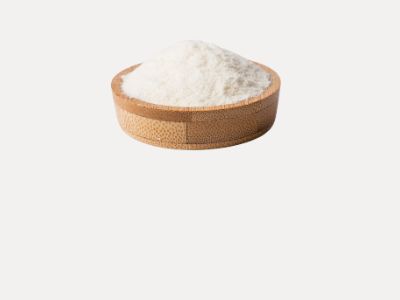
L-Tryptophan
Promotes calm behaviour
Known to reduce anxiety

Chamomile Extract
Natural calming properties
Alleviates anxiety

Turmeric (Curcumin)
Helps manage anxiety
Anti-inflammatory and antioxidant
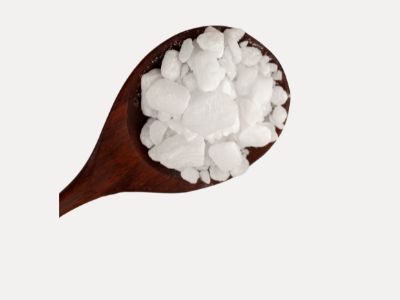
Magnesium
Regulates the nervous system
Supports muscle relaxation
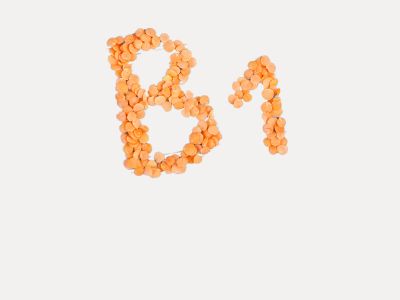
Vitamin B1 (Thiamine)
Calming the nervous system
Supporting stress resilience

WHAT IS IT?
L-Tryptophan supplementation in dogs has been associated with increased serotonin production, promoting calm behaviour and reducing anxiety. This is a well known observation in the vet health community.
RESEARCH
Studies on L-tryptophan in dogs primarily focus on its potential effects on anxiety and behavior, with mixed results. While some studies indicate a potential calming effect, others show no significant behavioral changes despite increased blood tryptophan levels. Research also explores the metabolism of L-tryptophan in dogs and its potential impact on liver health. Some studies suggest using L-tryptophan alongside other products in combination yields better results.This is one reason why the AnxiShield formulation offers L-Ttryptophan in combination with other products.
> Read publication

WHAT IS IT?
Chamomile has natural calming properties and has been used to alleviate anxiety and restlessness in dogs.
RESEARCH
- Direct, standalone clinical trials specifically on chamomile extract for anxiety in dogs with consistently clear positive results are limited in widely accessible peer-reviewed literature. However, some studies on multi-ingredient calming supplements that include chamomile have been conducted.
Effect Found: While standalone efficacy is less extensively documented through rigorous trials, chamomile has long been used anecdotally for its calming properties. Some multi-ingredient calming aids for dogs, which contain chamomile, have reported positive effects on anxiety-related behaviors in observational or pilot studies. Further targeted research on chamomile extract alone is needed.
Current research points to anecdotal support and its inclusion in multi-ingredient calming aids, rather than standalone clinical trials demonstrating significant effects.

WHAT DOES IT DO?
Turmeric, particularly its active compound curcumin, is believed to help manage anxiety in dogs due to its anti-inflammatory and antioxidant properties.While not a direct treatment for anxiety, it can help reduce inflammation and oxidative stress, which may be contributing factors to anxiety in some dogs.Additionally, turmeric's potential to support a healthy gut microbiome may also indirectly benefit anxiety, as the gut-brain axis is increasingly recognised for its role in mood regulation.
RESEARCH
---------------------------------------------
A study investigated the effects of dietary administration of curcumin (from turmeric) and a non-steroidal anti-inflammatory drug (NSAID) on the transcriptome of white blood cells in osteoarthritic dogs.
Effect Found: Curcumin administration, both alone and in combination with an NSAID, modulated the gene expression in white blood cells of osteoarthritic dogs, indicating an anti-inflammatory effect at a cellular level that could contribute to pain management in arthritis.
Publication: Transcriptome modification of white blood cells after dietary administration of curcumin and non-steroidal anti-inflammatory drug in osteoarthritic affected dogs. (2012).

WHAT DOES IT DO?
Helps regulate the nervous system and supports muscle relaxation.
RESEARCH
RESEARCH:
- A pilot study explored the effects of supplementation with omega-3 fatty acids, magnesium, and zinc on canine behavioural disorders.
Effect Found: The study, using a combination supplement, showed a significant reduction in certain behavioural disorders, including fearfulness, destructiveness, and inappropriate elimination in dogs. This suggests that magnesium, as part of a balanced supplement, can play a role in supporting canine behavioral health.
Publication: Pilot study of the effect of supplementation with omega-3 fatty acids, magnesium, and zinc on canine behavioural disorders. (2014).

WHAT DOES IT DO?
Aids in calming the nervous system and supporting stress resilience.
RESEARCH
- An experimental study investigated the effects of thiamine (Vitamin B1) deficiency in Beagle dogs.
Effect Found: Thiamine deficiency in dogs led to severe neurological lesions, including widespread symmetrical lesions in the brain and brainstem, demonstrating the critical role of Vitamin B1 in maintaining a healthy nervous system and preventing neurological dysfunction.
Publication: Neurologic lesions in Beagle dogs with experimentally induced thiamine deficiency. (1986).
VitaShield ™ Essential
This daily multivitamin includes a spectrum of essential nutrients to support nose-to-tail wellness. Use the plus icon ⊕ below to explore each ingredient and the clinical evidence behind it. We've shared a few representative studies for transparency.


Zinc
Known anti-oxidant
Assists with tissue repair
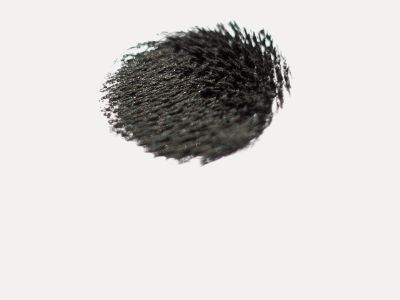
Iron
Component of haemoglobin
Maintains normal metabolism
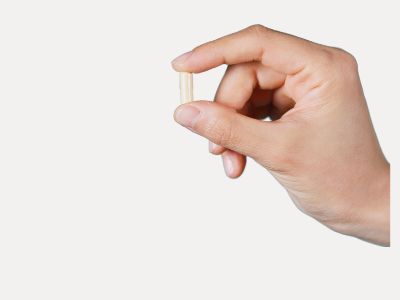
Vitamin B2 & B3
Helps general metabolism
Maintains skin integrity

Vitamin B5
Role in normal energy metabolism
Transmission of nerve impulses

Manganese
An essential mineral
Role in bone development
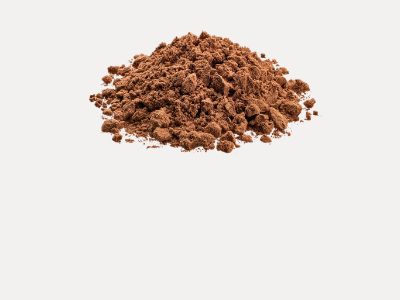
Copper
Helps bone development
Role in iron metabolism
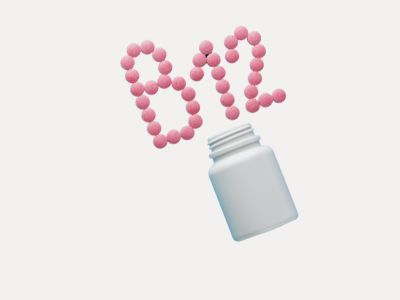
Vitamin B12
Role in general metabolism
& blood cell production
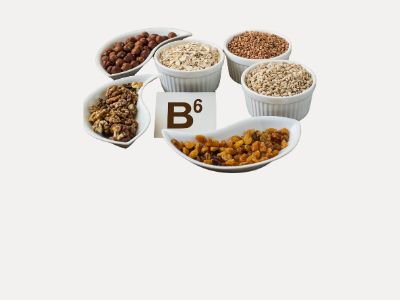
Vitamin B6
Role in general metabolism
Helps red blood cell formation
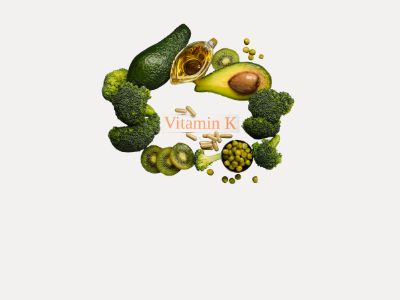
Vitamin K1
A fat-soluble vitamin
Maintains normal blood clotting

Iodine
Necessary for metabolic processes
Role in normal thyroid function
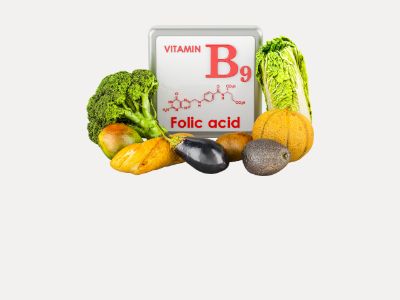
Vitamin B9
Maintains healthy coat
Helps in metabolism of fats

Vitamin D3
Needed for healthy bones & teeth
Helps absorption of calcium

Vitamin E
A powerful antioxidant
Maintains overall health

Vitamin A & C
Crucial for vision
Helps maintain immunity

Magnesium
Regulates the nervous system
Supports muscle relaxation

WHAT IS IT?
Zinc is an antioxidant that occurs naturally in many foods, such as beans, meat, and fish. It assists with tissue repair, therefore skin health, and enzyme function.
RESEARCH
- Zinc-responsive dermatosis is a well-recognized syndrome in dogs, indicating the crucial role of zinc in skin health.
Effect Found: In dogs with zinc-responsive dermatosis, supplementation with zinc leads to significant improvement or resolution of skin lesions, highlighting zinc's essential role in maintaining healthy skin and immune function. Zinc is also vital for enzyme activity and overall cellular health.
Publication: Zinc-responsive dermatosis in dogs. (Information widely available in veterinary dermatology texts and clinical resources).

WHAT IS IT?
Iron has as an important role in maintaining normal metabolism and is a component of haemoglobin in red blood cells.
RESEARCH
- A study evaluated the bioavailability of different polysaccharide-iron complex preparations using a beagle dog model of iron-deficiency anemia.
Effect Found: The study demonstrated that certain polysaccharide-iron complex formulations effectively increased iron bioavailability and red blood cell parameters in iron-deficient beagle dogs, confirming the efficacy of iron supplementation in addressing anemia. Iron is crucial for oxygen transport and energy production.
Publication: Bioavailability of different polysaccharide-iron complex preparations in a beagle dog model of iron-deficiency anemia. (2020).
Read publication 1
Read Publication 2

WHAT DOES IT DO?
Vitamin B2 (Riboflavin) is required for normal general metabolism and growth. It has a role in maintaining integrity of skin, mucous membranes etc.
RESEARCH
- Studies have investigated the riboflavin requirement of adult dogs and the nervous system lesions produced by its deficiency.
Effect Found: Riboflavin is essential for various metabolic pathways, including energy production. Deficiency in dogs leads to severe nervous system lesions, including demyelination and degeneration. Studies have also determined the minimum daily requirement for adult dogs, confirming its critical role in maintaining neurological health and overall vitality.
Publication (Deficiency): Nervous system lesions produced by diets lacking riboflavin (Vitamin G) in dogs. (1936).
Read Publication
Publication (Requirement): Riboflavin requirement of the adult dog at maintenance. (1955).
Read Publication
------------------------------------------
Vitamin B3:
Vitamin B3 is involved in general metabolism and red blood cell formation. It has a role in maintaining normal healthy skin and hair condition.
RESEARCH:
- A study investigated the effects of oral nicotinic acid (a form of Vitamin B3) administration on lipid profiles, thyroid hormones, and oxidative stress in intact adult dogs.
Effect Found: Oral nicotinic acid was effective in improving serum levels of beneficial lipids (HDL, apoA1) and total antioxidant capacity (TAC), while decreasing harmful lipids (LDL) and oxidative stress markers (MDA) in adult dogs. This suggests a role for Vitamin B3 in supporting cardiovascular health and reducing oxidative stress.
Publication: Effect of oral nicotinic acid administration on lipids, thyroid hormones and oxidative stress in intact adult dogs. (2012).

WHAT DOES IT DO?
Vitamin B5 (Pantothenic Acid) has a role in normal energy metabolism, reproduction, growth and nerve function. It is proven to be involved in the transmission of nerve impulses in humans.
RESEARCH
- Direct clinical trials specifically on Vitamin B5 supplementation for specific beneficial uses in dogs are limited in readily available peer-reviewed literature. However, its role in metabolism and deficiency symptoms are well-documented.
Effect Found: Vitamin B5 is essential for numerous metabolic processes, including energy production, fatty acid synthesis, and hormone production. Deficiency can lead to symptoms such as poor growth, skin rash, and gastrointestinal issues in animals, highlighting its fundamental importance for overall health.
Publication: Limited direct clinical trials on Vitamin B5 supplementation for specific benefits in dogs. Its essential role is based on biochemical understanding and deficiency studies in animals.

WHAT DOES IT DO?
Manganese is an essential mineral. It has a role in general metabolism and development of bone, cartilage and connective tissue. It is also known for its role in maintaining normal growth, reproduction and lactation.
RESEARCH
- Research has investigated the concentrations of essential trace elements like manganese in the bones of domestic dogs.
Effect Found: Manganese is an essential trace mineral critical for bone development and maintenance. Studies confirm its presence in canine bone tissue, highlighting its integral role in skeletal health, cartilage formation, and enzyme systems involved in joint function.
Publication: Concentrations of manganese, iron and strontium in bones of the domestic dog (Canis lupus familiaris). (2015).
-------------------------------
- This trace mineral support enzymatic reactions and antioxidant defenses, contributing to joint and bone health.

WHAT DOES IT DO?
Copper has a role in iron metabolism, bone development and maintenance of elastic connective tissue.
RESEARCH
- Direct clinical trials on copper supplementation for specific benefits in healthy dogs (beyond addressing deficiency or genetic conditions) are limited in readily available peer-reviewed literature. However, its essentiality and roles are well-established.
Effect Found: Copper is an essential trace mineral vital for numerous physiological functions, including iron metabolism, connective tissue formation, neurological function, and immune system health. Deficiency can lead to anemia and neurological issues, while genetic disorders like copper toxicosis highlight the importance of balanced levels.
Publication: Limited direct clinical trials on copper supplementation for specific benefits in healthy dogs. Its essential role is based on biochemical understanding and the effects of deficiency/toxicity. (Refer to general veterinary nutrition texts for more).
> Read article

WHAT DOES IT DO?
Vitamin B12 (Cobalamin) is known for its role in general metabolism and nervous and reproductive function. It also plays a crucial role in blood cell production.
RESEARCH
- Veterinary diagnostic centers routinely measure Vitamin B12 levels in dogs to assess malabsorptive disorders.
Effect Found: Abnormal Vitamin B12 levels are a key indicator of various gastrointestinal diseases leading to malabsorption in dogs. Maintaining adequate B12 is essential for metabolic processes, red blood cell formation, and nervous system function, highlighting its diagnostic and physiological importance.
Publication: Canine, Feline, and Equine Metabolic Function Tests. (Cornell University College of Veterinary Medicine, Animal Health Diagnostic Center).

WHAT DOES IT DO?
Vitamin B6 plays a role in general metabolism, nervous system function and vision. It is involved in red blood cell formation and has a role in maintaining normal healthy skin.
RESEARCH
- Studies have explored the effects of Vitamin B6 on hormonal regulation and its potential to ameliorate chemotherapy-induced toxicity in dogs.
Effect Found: Vitamin B6 has been shown to modulate sex hormone receptors and reduce prolactin levels in pseudopregnant bitches, indicating a role in hormonal balance. Additionally, it effectively delayed the onset and reduced the severity of palmar-plantar erythrodysesthesia syndrome (PPES), a common cutaneous toxicity, associated with doxorubicin chemotherapy in dogs, demonstrating its beneficial use in mitigating drug side effects.
Publication (Hormonal): Modulatory effect of vitamin B6 on sex hormone receptors, thyroid hormones, and kisspeptin/kiss1r system in the uterus of pseudopregnant bitches. (2020).
> Read Publication
Publication (Chemotherapy Toxicity): Efficacy of oral pyridoxine to ameliorate cutaneous toxicity associated with doxorubicin in dogs. (2013).
> Read Publication

WHAT DOES IT DO?
This vitamin has a role in maintaining normal blood clotting processes.
RESEARCH
- Studies have investigated the use of Vitamin K1 in dogs exposed to anticoagulant rodenticides.
Effect Found: Vitamin K1 is the specific antidote for anticoagulant rodenticide poisoning in dogs, effectively reversing the coagulation defect and preventing life-threatening hemorrhages. This highlights its critical role in blood clotting and its importance in veterinary medicine.
Publication: Diagnosis and treatment of anticoagulant rodenticide poisoning in dogs. (1989).
> Read publication

WHAT DOES IT DO?
Iodine plays a role in normal thyroid function. It is a component of thyroid hormones which regulate metabolic processes including hair growth.
RESEARCH
- Iodine is an essential trace mineral for canine health, primarily due to its role in thyroid hormone production.
Effect Found: Iodine is crucial for the synthesis of thyroid hormones (T3 and T4), which regulate metabolism, growth, and development in dogs. Both deficiency and excessive intake can lead to thyroid dysfunction (hypothyroidism or hyperthyroidism), underscoring the need for balanced intake.
Publication: Role and safety of iodine supplementation for dogs (General veterinary nutrition information).
> Read article

WHAT DOES IT DO?
Vitamin B9 (Folic Acid) plays a role in the metabolism of fats. It plays a role in maintaining a normal healthy coat.
RESEARCH
A study investigated the effect of folic acid supplementation in a guide dog breeding colony on congenital malformations.
Effect Found: In a population of otherwise healthy guide dog breeding animals, folic acid supplementation did not significantly reduce the incidence of congenital malformations compared to the control group. While this specific study didn't show an effect on malformations in a healthy population, folic acid is known to be essential for DNA synthesis, cell division, and red blood cell formation, and is often supplemented during pregnancy.
Publication: Folic acid supplementation in a guide dog breeding colony and its effect on congenital malformations. (2007).
> Read article

WHAT DOES IT DO?
Vitamin D3 plays a role in the absorption of calcium and phosphorus. It also has a role in the normal growth and health of bones and teeth.
RESEARCH
A study evaluated the effect of Vitamin D3 on alveolar bone regeneration around dental implants in dogs.
Effect Found: Vitamin D3 played a positive role in alveolar bone regeneration around dental implants in dogs, indicating its crucial involvement in bone metabolism, calcium and phosphorus homeostasis, and overall skeletal health.
Publication: Effect of vitamin D3 on alveolar bone regeneration around dental implants in dogs. (2015).
> Read publication

WHAT DOES IT DO?
A powerful antioxidant that plays a crucial role in maintaining overall health.
RESEARCH
- Studies show that vitamin E supplementation can reduce inflammation markers in dogs with osteoarthritis, which is relevant to joint health.
---------------------------------------------
- Vitamin E is an antioxidant, and its antioxidant properties can help protect against oxidative stress, which is a factor in joint damage and inflammation.
--------------------------------------------
- A study investigated the effects of parenteral vitamin E and selenium supplementation on the immune status of vaccinated dogs. Another study examined the effect of vitamin E deficiency on the proliferative response of canine lymphocytes.
Effect Found: In vaccinated dogs, supplementation with Vitamin E resulted in greater serum levels of the vitamin and contributed to an optimised immune response. Conversely, Vitamin E deficiency was shown to depress the proliferative response of canine lymphocytes, demonstrating its critical role in maintaining a robust immune system. Vitamin E is also a powerful antioxidant, protecting cells from damage. - Publication (Immune Status): Influence of parenteral vitamin E and selenium supplementation on the immune status of vaccinated dogs. (2007).
> Read Publication - Publication (Deficiency): Effect of vitamin E deficiency on proliferative response of canine lymphocytes. (1993).
> Read Publication

WHAT DOES IT DO?
Vitamin A plays a role in maintaining normal vision, skin, bones and muscles.
Vitamin C plays a crucial a role in maintaining healthy cartilage, tendons and bone. It also boosts general immunity.
RESEARCH
Vitamin A
Vitamin A plays a role in maintaining normal vision, skin, bones and muscles. It has a role in maintaining normal growth processes and reproductive performance. It has a role in maintaining integrity of skin and mucous membranes.
RESEARCH:
- Direct clinical trials specifically on Vitamin A supplementation for specific beneficial uses (e.g., enhanced immune function or vision) in healthy dogs beyond addressing deficiency are limited in readily available peer-reviewed literature. However, its essential roles are well-established.
Effect Found: Vitamin A is crucial for vision (especially in low light), immune function, cell differentiation, and maintaining healthy skin and mucous membranes in dogs. Deficiency can lead to visual impairment, poor growth, and susceptibility to infections.
Publication: Limited direct clinical trials on Vitamin A supplementation for specific benefits in healthy dogs. Its essential role is based on biochemical understanding and deficiency studies in animals.
Read publication
--------------------------------------------
Vitamin C:
Plays a crucial a role in maintaining healthy cartilage, tendons and bone. It also boosts general immunity.
RESEARCH:
- A study evaluated the effects of long-term Vitamin C (ascorbic acid) supplementation on antioxidative capacity and specific immune parameters in healthy adult dogs.
Effect Found: The study observed some limited immunological effects (e.g., increased CD4+ lymphocytes, specific interactions on PBMC proliferation) but no clear overall enhancement of antioxidative capacity in healthy dogs. This suggests that while essential, Vitamin C supplementation may have a nuanced impact in healthy dogs already receiving adequate dietary intake. It is well-established as an important antioxidant and cofactor.
Publication: Effects of long-term ascorbic acid supplementation on antioxidative capacity and specific immune parameters in healthy adult dogs. (2003).
Read publication

WHAT IS IT?
Helps regulate the nervous system and supports muscle relaxation.
RESEARCH
A pilot study explored the effects of supplementation with omega-3 fatty acids, magnesium, and zinc on canine behavioural disorders.
Effect Found: The study, using a combination supplement, showed a significant reduction in certain behavioural disorders, including fearfulness, destructiveness, and inappropriate elimination in dogs. This suggests that magnesium, as part of a balanced supplement, can play a role in supporting canine behavioral health.
Publication: Pilot study of the effect of supplementation with omega-3 fatty acids, magnesium, and zinc on canine behavioural disorders. (2014).






